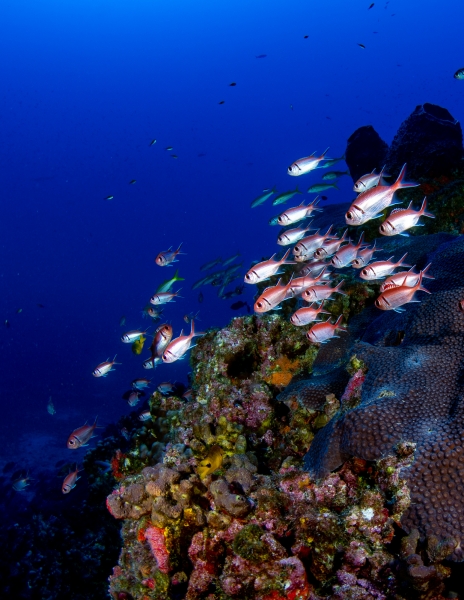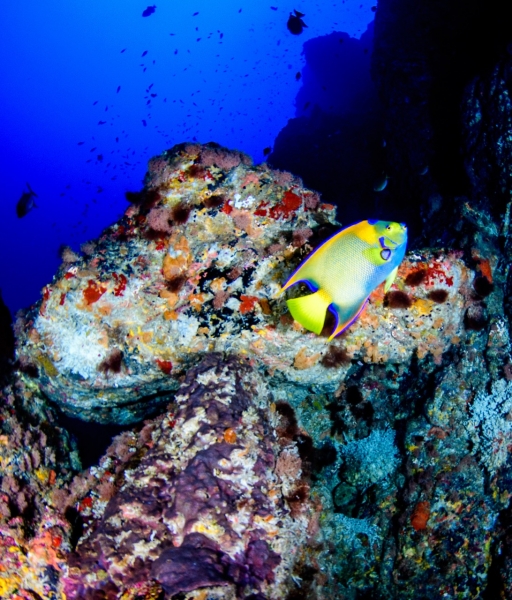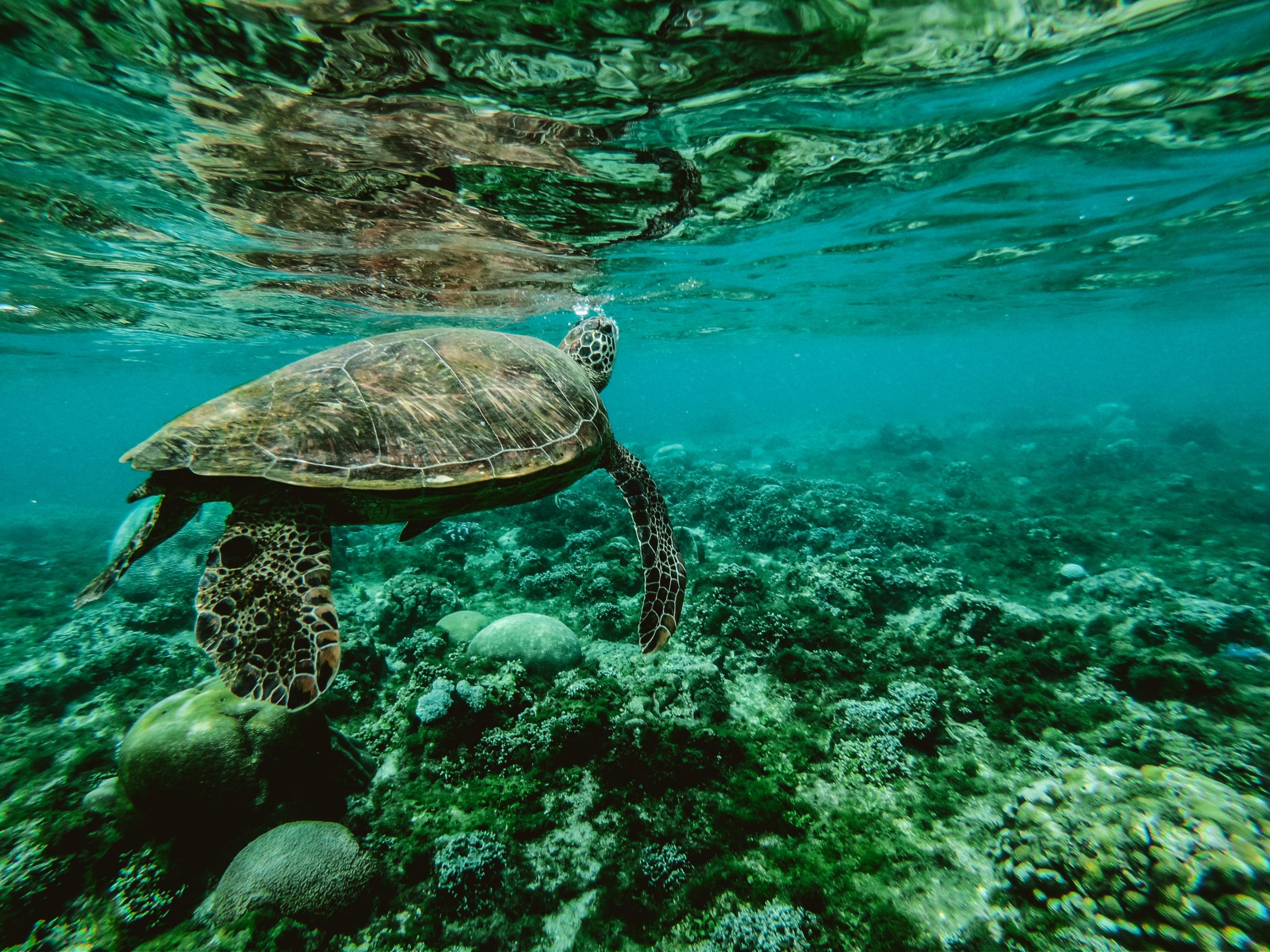The oceans cover about two-thirds of the Earth’s surface; however, they are still little known and conserved. The protection of life in the water is the theme of the Sustainable Development Goal 14 of the United Nations (UN), which officially launched last Tuesday (20), the Decade of Ocean Science for Sustainable Development. The year 2021 marks the beginning of this decade, which runs until 2030, and aims to raise awareness among the world population about the role of the seas, which influence the environment on fundamental issues such as climate regulation, oxygen production, and carbon sequestration and storage. The proposal is to mobilize public and private agents and organized civil society in actions that favor the health and sustainability of the oceans. For this, adaptation strategies and inclusive, participatory, global, science-based political decisions are fundamental.
In this context, biologists and professors at Universidade Federal Fluminense (UFF) Renato Crespo Pereira and Abílio Soares Gomes published last April the book ‘Marine Ecology’ by the publisher Interciência, which brings together articles on the marine environment signed by 53 authors – all recognized researchers in the study of Marine Sciences and linked to various Brazilian institutions. “The book was conceived from handouts prepared for our students. Based on the collection of robust material, we organized specialized and updated content about Marine Ecology,” says Abílio Soares.
Recent research shows that the oceans are already extremely impacted by human action. Trash and plastic have been found even on the shores of distant islands and in the Arctic, which shows how widespread the pollution issue is.
Abilio Soares
 The researchers explain that one of the main objectives of the work is to make available didactic material in the area of Marine Sciences with examples from the Brazilian coast and to fill a gap in the basis of human resources training in the area. “When I graduated, marine ecology was studied with examples from other countries, other climates, and other latitudes. In recent years, there has been a marked development in the studies of the biology of the Brazilian seas, and for this reason, we have gathered good material available in scientific articles. In Marine Ecology, we make this research available in chapters. The text has a strong focus on the characterization of different environments such as beaches, lagoons, deep sea, rocky coasts, and mangroves, among others, that are unique to the Brazilian coast. We have numerous examples that are intended to help in the teaching of Marine Science in Brazil,” says Renato Crespo.
The researchers explain that one of the main objectives of the work is to make available didactic material in the area of Marine Sciences with examples from the Brazilian coast and to fill a gap in the basis of human resources training in the area. “When I graduated, marine ecology was studied with examples from other countries, other climates, and other latitudes. In recent years, there has been a marked development in the studies of the biology of the Brazilian seas, and for this reason, we have gathered good material available in scientific articles. In Marine Ecology, we make this research available in chapters. The text has a strong focus on the characterization of different environments such as beaches, lagoons, deep sea, rocky coasts, and mangroves, among others, that are unique to the Brazilian coast. We have numerous examples that are intended to help in the teaching of Marine Science in Brazil,” says Renato Crespo.
According to the authors, the publication covers basic issues and some contents that have been little discussed in other publications in the area. “The book brings together various aspects of ocean ecology, from small organisms that live suspended in the water column, to fish and large mammals. We have gathered chapters on essential subjects, but they are not treated only in a basal way. The topic of marine plankton, for example, is discussed at a very up-to-date level of depth. We also cover topics such as ‘marine natural products,’ which use marine biodiversity as a source for bioproduct development and innovation; and ‘marine chemical ecology,’ which deals with the ecological relationships that are chemically mediated in the sea. These are very current and under-explored topics.”
We surveyed an important history about conservation initiatives in Brazil and in the world, which dialogues with the debates about public policies for marine life that will be on the world agenda for the next ten years. The contribution of national scientific knowledge in this global context of the decade of the oceans is of great importance for the preservation of the marine environment.
Renato Crespo
 Another relevant issue in the publication is the pollution and conservation of the seas. The professors point out that the degradation of the marine environment is the responsibility of planet Earth as a whole since the oceans have a great influence on important points of collective interest such as the Earth’s climate. “Recent research shows that the oceans are already extremely impacted by human action. Trash and plastics have been found even on the shores of distant islands and in the Arctic, which shows how widespread the issue of pollution is. The decade of the oceans was established due to the need to take political, institutional, and scientific measures to reverse this deterioration of the oceans. In the last chapter of the book, we discuss public policies for the conservation of the marine environment, which is an innovation in the bibliography of Marine Sciences,” they complement.
Another relevant issue in the publication is the pollution and conservation of the seas. The professors point out that the degradation of the marine environment is the responsibility of planet Earth as a whole since the oceans have a great influence on important points of collective interest such as the Earth’s climate. “Recent research shows that the oceans are already extremely impacted by human action. Trash and plastics have been found even on the shores of distant islands and in the Arctic, which shows how widespread the issue of pollution is. The decade of the oceans was established due to the need to take political, institutional, and scientific measures to reverse this deterioration of the oceans. In the last chapter of the book, we discuss public policies for the conservation of the marine environment, which is an innovation in the bibliography of Marine Sciences,” they complement.
For Renato and Abilio, pollution and conservation of the seas are urgent issues. The professors point out that it is fundamental to have a decade dedicated to solving the problems that the oceans have been presenting as a result of human actions: “In a book about Marine Ecology, we couldn’t help but discuss these issues. We raised an important history about the conservation initiatives in Brazil and in the world, which dialogues with the debates about public policies for marine life that will be on the world agenda for the next ten years. The contribution of national scientific knowledge in this global context of the decade of the oceans is of great importance for the preservation of the national marine environment,” add the authors.
The recent release of the publication has high expectations of return for the authors, especially considering the acceptance of the previous work, organized by the faculty in 2009. “Specialized publications that we previously organized were adopted in several undergraduate and graduate courses in the country, as well as in public competitions for professionals in the area of Marine Sciences. The book ‘Marine Biology’, for example, became the basis for the training of about three generations of professionals in the area,” adds Abilio. “The recent “Marine Ecology” has improved even more, with a vast amount of color images, which makes it easier to visualize and understand aspects of the sea. I believe this was a significant advance in the production of the content, which will contribute to its positive repercussion both for academics and those interested in the subject,” concludes Renato.
Inline photos credit: Luiz Rocha




